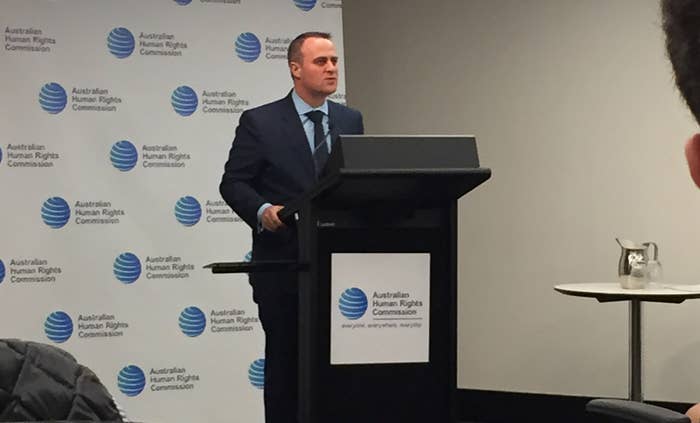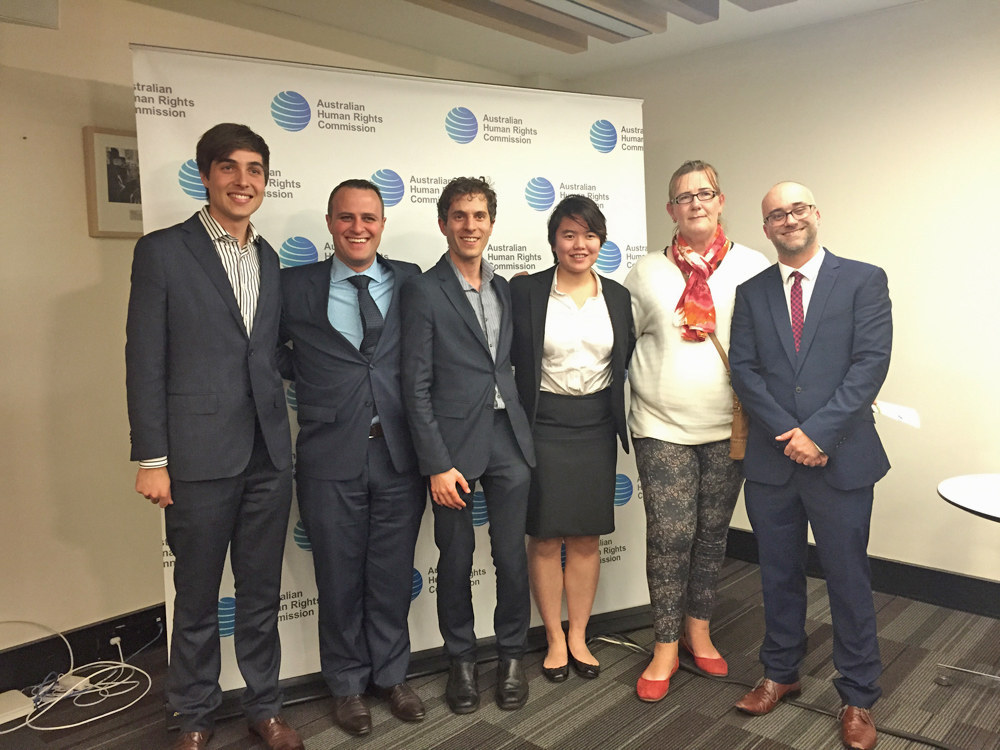The first ever guide assessing all Australian universities on their inclusion of lesbian, gay, bisexual, transgender and intersex students has been launched.
The University of Sydney.
The Australian LGBTI University Guide, a free, online publication, provides information about Australian universities on their efforts to include LGBTI students.
The guide was jointly produced by the Star Observer and the NSW Gay and Lesbian Rights Lobby, with support from advocacy bodies Out For Australia, Transgender Victoria and Organisation Intersex International Australia.
Speaking at the Monday night launch, NSW Gay and Lesbian Rights Lobby Convenor Justin Koonin named some of Australia's best universities for LGBTI inclusion.
Universities including Curtin, La Trobe, Queensland, Queensland University of Technology, Sunshine Coast, Swinbourne, Sydney, UNSW, Western Australia and Wollongong are all "going to considerable lengths to include LGBTI students", said Koonin.
Each university was judged against a set of 15 criteria, based on information from the university that was publicly available. On the website, students can look up each university and see how they fare via a checklist system.
Criteria included whether the university had anti-discrimination policies, mandatory training for staff, resources, welfare and health support, and societies and events that catered specifically for LGBTI students.
The guide was launched by Human Rights Commissioner Tim Wilson, who spoke about the liberating experience of attending university as a young gay man.

"After going through the trials and social pressure of high school, university is often the first opportunity to breathe your first breath as your true self," Wilson said.
"After struggling through high school and the torment of self repression, I was elated to be validated by getting into university. But it was a much more important experience than just education," he said.
"After years of suppression about who I was from my friends and my family, it was an opportunity for the first time in my life to be who I was, not who others wanted me to be, which was so liberating."

Although the guide was hailed as a "good start", Justin Koonin said it shows that inclusion of transgender and intersex students lags behind that of lesbian, gay and bisexual students.
"If you want to include trans and intersex people, you can't just stick a T and an I on the end of all your documents," he said.
"You actually have to do something different, because the needs of intersex, trans and gender diverse people are not the same as lesbian, gay and bisexual people."
The guide found that university bureaucracy often makes life difficult for transgender, gender diverse and intersex students. Not all universities allow students to change their gender on forms or officially state their gender as non-binary.
La Trobe University, Bundoora.
Other shortfalls were highlighted by the guide, including a lack of relevant sexual health information and career advice for LGBTI students.
It found that university services often grouped lesbian, gay and bisexual students together, providing little specific information for bisexual students in particular.
Two thirds of universities did not have mandatory training for staff in regards to equal opportunities for LGBTI students, and only one in five institutions had anti-discrimination policies that reflected current legal protections.
However, headway is being made in some areas. Over half of all universities have a staff ally network, and approximately three quarters have a student society inclusive of LGBTI people.
View this video on YouTube
Students, staff and visitors create a chalk rainbow on the main thoroughfare at Sydney University ahead of their Ally Network launch.
Jen Chen, a 20-year-old student and Queer Officer at the University of New South Wales, said the guide would offer much needed support to young people who were still in the closet.
"When I started university, I had to do my own research, and there was very little information available online," she said. "The shift to university is often very intimidating and you don't know what to expect."
Chen spoke about the fear and apprehension of approaching UNSW's queer society stall during O-Week.
"The stall was on the main walkway, and I was petrified I would be seen by a family friend and subsequently outed to my family. Every time I attempted to walk up to the stall, I would automatically veer off to a neighboring stall," she said.
"Eventually, I mustered the courage, walked up and introduced myself. If I hadn't taken that step, I would have had a very different university experience."
"For many people, this university guide will make them feel more comfortable to pursue studies at university. It will allow people to easily and without hassle find support networks on campus."

